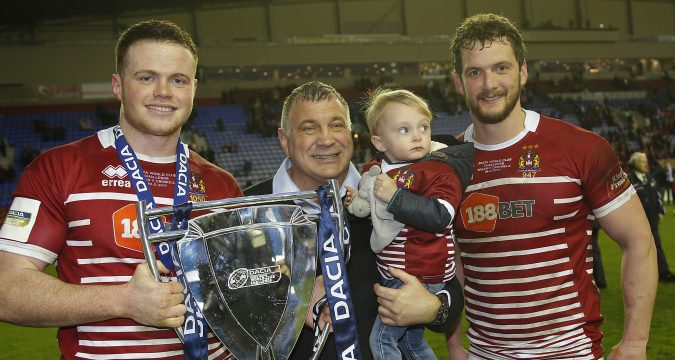 Super League clubs are putting faith in young, English head coaches. This is undoubtedly a good thing.
Last month both Salford and Wakefield, two of the biggest success stories of the last 12 months, offered their coaches new long-term deals. Ian Watson and Chris Chester both had experience in management, but there were more seasoned candidates
Super League clubs are putting faith in young, English head coaches. This is undoubtedly a good thing.
Last month both Salford and Wakefield, two of the biggest success stories of the last 12 months, offered their coaches new long-term deals. Ian Watson and Chris Chester both had experience in management, but there were more seasoned candidates COLUMN: The emergence of British coaches shows a change in approach from clubs
 Super League clubs are putting faith in young, English head coaches. This is undoubtedly a good thing.
Last month both Salford and Wakefield, two of the biggest success stories of the last 12 months, offered their coaches new long-term deals. Ian Watson and Chris Chester both had experience in management, but there were more seasoned candidates
Super League clubs are putting faith in young, English head coaches. This is undoubtedly a good thing.
Last month both Salford and Wakefield, two of the biggest success stories of the last 12 months, offered their coaches new long-term deals. Ian Watson and Chris Chester both had experience in management, but there were more seasoned candidates 